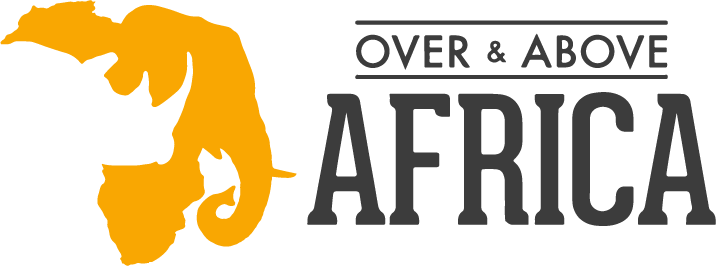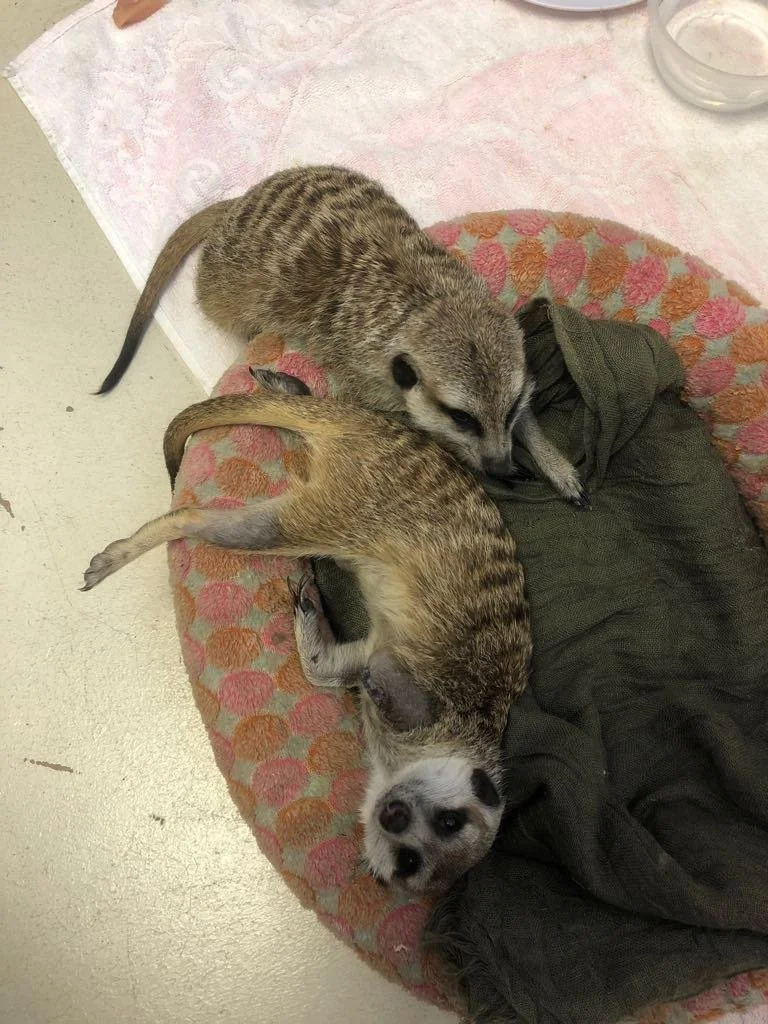Alma’s Solid Earth Facility - Kalahari meerkats
Kalahari meerkats, scientifically known as Suricata suricatta, are fascinating creatures native to the Kalahari Desert in southern Africa.
Alma believes are overlooked by too many. They are extremely cute, yes, but do not underestimate them! When they need to be, they can be extremely ferocious. Our friends at Solid Earth Meerkat Rehab and Rescue, also believe them to be a species in dire need of international attention and assistance. They’vevmade it their life’s mission to save this intricate species from disappearing altogether.
For 10 years Alma Celeste Stafford has studied Meerkats in and around the Kalahari region of South Africa. She has developed a unique understanding of their behaviors and position in Africa’s delicate ecosystem. Whenever a meerkat is found injured, or in need, the community knows to bring it to Alma. She will tend to the immediate needs of each meerkat, and then set about the long road to rehabilitate and rewild it to a secure location where she also monitors their progress. It’s not just a long (two-year!) and painstaking process, it’s expensive to reintroduce them properly to their natural habitat so they can thrive self-sufficiently.
With Alma’s permission, we just uploaded her current request for funding - it’s 10 minutes long but it’s insightful and it clearly demonstrates how challenging life in Africa can be when in conservation and relying on the generosity of donors to support your mission.
The Kalahari is known for a variety of unique species. It shares its border with Botswana, home to leopards, cheetahs, brown hyenas, caracals and jackals - all are known to cross the border and enter into South Africa. Due to commercial poaching interests, many are killed or smuggled out of the country almost immediately. This conflict between wildlife and poachers, traffickers and livestock farmers, too often results in their imminent death. It’s not just predators who suffer, but porcupines, aardvarks, polecats, genets and African wildcats, get caught up in the human animal conflict. We humans have encroached on their wilderness forcing interactions between humans and wildlife - and while sometimes resulting in the death of humans, it nearly always results in the death of the animal.
Solid Earth Rehab and Rescue is located in a very remote area with its closest town for supplies and medical care, 200km away. It’s the only meerkat rehabilitation facility in the area and while they currently focus only on meerkats, their goal is to build an extensive network to make a difference in helping all species, indigenous to the Kalahari.
“We pride ourselves in the fact that we are driven by our absolute love, passion and commitment to these animals to give them only the best. Our process takes a long time, but once we have completed it, we know for sure that everything possible was done to give every individual in a mob (a group of meerkats is called a mob!), a fighting chance at having a successful life in the wild. Ethical rehabilitation is what we stand for and we will not budge on that. We really need help with sustaining this project and expanding it. Building a future for a rapid declining species, our awesome Kalahari Meerkat.” Alma Celeste Stafford.
CURRENT NEEDS FOR MEERKAT CARE: As of June 9th, 2024 - the South African Rand is SAR 19 to US $1.00
(to calculate the price, take the rand amount and divide it by 19 for the US dollar value today)
- Electricity R1,500 ($78.94)
- Rent R2,000 ($105.00)
- Diesel R10, 000 ($526.00)
- Meerkat food R/C R25 000/R30 000 ($1,315.78)
- Medical Supplies Depends on what is out of stock. This month we need Baycox which is R4200 per 500ml. ($221.05)
Metacam injectable R1450.
Kortico injectable R785.
Baytril injectable R560
1cc syringes R149 per 100
21g needles R120 per 100
- Vets R5,000 ($263.15)
This differs month to month Our vet bill currently is R27,000. ($1,421.05)
- Workers salaries R10,800
- Enclosure Maintenance R3000/R5000
We urgently need more enclosures.
3m x 3m works out R6700 to complete. But we have to buy the wire mesh in roles of 50m
- Sanitizers/Cleansing blankets enclosures and utensils
F10 5L = R1,586
Vinegar 25L R480
Machine washing liquid R510
- Water R3,000
- Vehicle maintenance R3,000
This is not monthly but services, tyres, battery are big expenses every now and then. So we try to budget for a monthly amount to add up. The roads we drive are tough on vehicles
Here are some key points to know about them:Meerkats are a species:
Social Structure: Meerkats are highly social animals, living in groups called mobs or clans, which typically consist of 20 to 50 individuals, although they can sometimes number over 100. Within these groups, there is a complex social hierarchy, with dominant individuals often taking on leadership roles.
Communication: Meerkats are known for their excellent communication skills. They use a variety of vocalizations, body postures, and gestures to communicate with each other, helping to coordinate activities such as foraging and keeping a lookout for predators.
Foraging: Meerkats are omnivores, feeding primarily on insects, but also on other small animals, fruits, and seeds. They are skilled hunters, using their keen sense of smell and sharp claws to dig for food.
Sentry Duty: A particularly iconic behavior of meerkats is their sentry duty. They take turns standing on their hind legs, scanning the surroundings for potential threats while the rest of the group forages. If a predator is spotted, the sentry will emit a warning call, and the group will quickly seek shelter.
Reproduction: Meerkats have a complex breeding system. Only the dominant pair in the group typically breed, while other members help to care for the young. Gestation lasts about 11 weeks, and females give birth to litters of 2 to 5 pups. The entire group shares responsibility for raising and protecting the pups.
Adaptations to Desert Life: Living in the harsh environment of the Kalahari Desert, meerkats have several adaptations to help them survive. They have a specialized respiratory system that allows them to close their ears and nostrils to keep the sand out when digging. They also have dark patches around their eyes to reduce glare from the sun.
Conservation: While meerkats are not currently listed as endangered, they do face threats from habitat loss and fragmentation, as well as predation by animals such as birds of prey and snakes. Conservation efforts focus on protecting their natural habitat and raising awareness about the importance of these animals in their ecosystems.




































